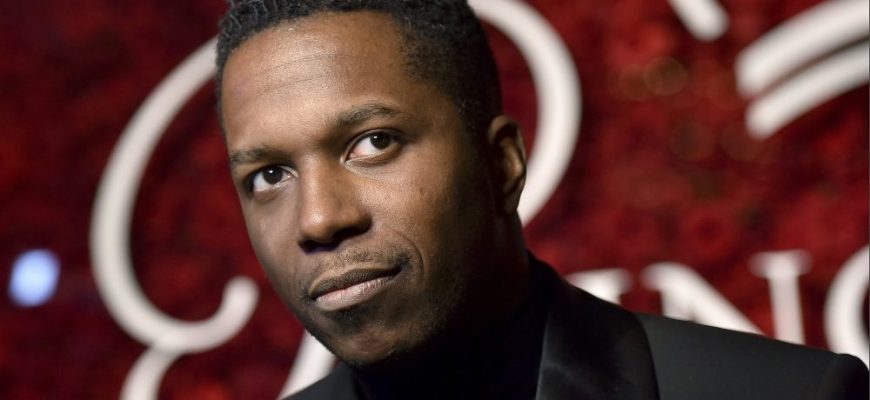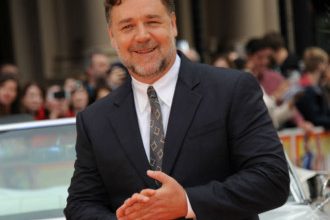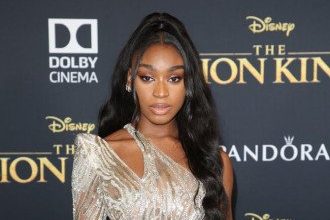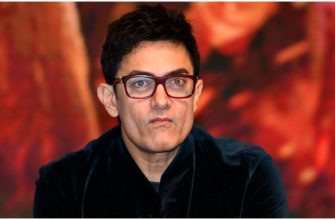When Leslie Odom Jr. signed up to play Sam Cooke in “One Night in Miami,” he knew that he had a non-acting task awaiting him after shooting: director Regina King had already made it clear that whoever played the late, great soul singer was also who she wanted to co-write and perform an original end-credits theme. That task fell readily into the hands of Odom, who had already used his stardom from his stage role in “Hamilton” to launch a career as a singer-songwriter.
The he Golden Globe-nominated and Oscar-shortlisted “Speak Now,” which Odom co-wrote with his friend Sam Ashworth, is intended to subtly echo Cooke’s own “A Change Is Gonna Come”… even if, as Odom explains it, it’s closer to a still questioning song than “answer song” per se.
But, as Odom tells Variety in the following Q&A, it wasn’t 100% set from the start that his final offering would be in an inspirational/protest vein that would seem of a piece with Cooke’s “Change” or Bob Dylan’s “Blowin’ in the Wind,” which also figures into the plot of the film (which dramatizes a 1964 night in the life of Cooke, Muhammad Ali, Malcolm X and Jim Brown). Like any actor eager to offer a director different takes, he gave King choices in how to let the last few minutes of the movie aurally play out.
VARIETY: How much instruction did you get from Regina about what she hoped your song would fulfill as it closes out the film?
ODOM: We didn’t really have a conversation in that way. The assignment was to write a handful of tunes. She wanted four, because she wanted to have a selection. And I didn’t have much time to deliver the four, but I also didn’t have much time to feel sorry for myself about that, so I just got to work. In hindsight, I’m really glad that I got to write more than one, because the experience obviously meant so much to me, and I had quite a bit inside that I felt like I wanted to say. So the fact that I got to spread that out over four tunes meant that I wasn’t so precious with any one of them. If I was going to write four, I wanted them to be very different, and let her choose which one she wanted, and then we would continue to refine it. After she picked “Speak Now,” we started to talk about ways we might edit it, ways we could make it better from the demo that she heard.
Will we ever hear any of the other three songs that you wrote for consideration?
There’s one of them that I really can’t wait to get back to, to pick it up and put it on a record or something like that. But I knew that it might be an unconventional choice. It was a real up-tempo kind of party tune, so I knew it would be risky, but I dug it. Yeah, those other songs, I’m sure they’ll get repurposed.
The big question in doing an end-credits song for a movie that has a contemplative ending is whether to carry that mood forward or bring everyone up. If Regina had gone for the up-tempo song, that would’ve countered the feel of what it was coming out of a little bit.
Yeah, right. Before I wrote with each of the teams — because I wrote in collaboration with other artists; I don’t really like to be holed away in a room by myself. I want to be bouncing things off of another person, making one another better — we would always watch those final 10 or 15 minutes of the movie. With the up-tempo (alternative)… I thought, that’s what they showed up there for (at the hotel setting). I think there’s so much joy present on that night, too. It’s a celebration; it’s a party. And even though things go left, the film is a celebration of brotherhood and friendship and humanity.
How did you arrive at “Speak Now” as your alternate approach?
Sam Ashworth, who I’ve written many songs with, is a good friend. It’s a great creative exchange, but it’s also a nice hang. We knew the song would come after “A Change is Gonna Come.” And the first question we asked ourselves was: Has that change come? And if it has, for whom? We went back to that Bob Dylan tune and thought about those answers blowin’ in the wind. Are they still out there? We were imagining what questions an audience in 2021 might have about that. It’s like, when you’ve been singing “A Change Is Gonna Come” for decades on decades, eventually people are going to be like, “Well, when? When is the change going to come?” In taking an honest look at where we are and how far we’ve come, I think it’s undeniable that some of that change has come. I think it’s cynical and not true to say that we are in the exact same spot that we were when Sam wrote that song and he imagined a future. I also don’t think he would say “You’re all done — congratulations, you did it.” But I think that he would also say, “It’s not finished. So, what are you doing about that? The work ain’t done. The change hasn’t come? Okay, well, get to work” — I think that’s what he’d be saying.
Was it intimidating to know that your song would come soon after “A Change Is Gonna Come” — and it couldn’t feel like a major letdown?
Yeah, I know. Even in singing Sam’s music, the first hurdle was believing in myself. I trusted Regina, and if Regina thought I could be a Sam Cooke, and if Regina thought I should be the one attempting to write that song, I had to find the belief in myself And the way we got over that particular very important bump was to go, in the same way that these four men could occupy space in that hotel room and not be diminished or in competition with one another, that they could occupy unique space and support one another in this room, the same way that I felt that on the set with my brothers, with Kingsley and Aldis and Eli… We were a company. We were a real ensemble, with Regina included, that could occupy space and it didn’t mean that somebody had to dim their light for me to shine or vice versa.
So we just thought that we can do that with this song, too. We’re not in competition with “A Change Is Gonna Come.” We’re not in competition with “Blowin’ in the Wind.” We want to make an offering. We want to add something that can occupy its own space. That was the only way we were going to be able to do it. Because, I mean, if you’re starting from a competitive place, I think as an artist, that’s dicey.
Were you thinking at all in terms of: If Sam Cooke were still around, or if the ghost of Sam Cooke were to come back and sing a song, this would be in his voice? Maybe not literally singing like him, but that it was a sequel in some way that you could imagine to “A Change Is Gonna Come” that he would do?
That’s a great question. And I really thought that it would be important that I added my own voice. It wasn’t Sam Cooke singing now. I didn’t have a prosthetic nose on anymore. I wasn’t trying to do his voice in any way, really. The filming was about bringing him as close to me — or me standing on my tiptoes, rather — trying to get as close as I could get to him as possible. And I knew that there would be places that I would fall short, but I figured — I hoped — that if my intentions were pure, that there could be magic moments in there. But when we sang “A Change Is Gonna Come,” that was my final day of shooting. And after Regina gave me a big old hug and said “Job well done,” and I left the prosthetic nose and left Sam behind in that way, I had to take those steps to remembering who I was again.
So by the time we wrote this song, this was months after we’d finished shooting and I really did feel like I was in the seat of myself again. So, yeah, it didn’t feel like Sam at all. It felt like I need to now take everything I’ve learned from playing Sam, everything that Sam has given me and left me here, and do my best to be all that I can be.
You changed your voice somewhat to play Sam. Is that something you can instantly snap out of, when you’ve spent that much time on it, even though you didn’t do a huge amount of singing for the movie?
No, it does take a second to let them go. I mean, as you can imagine, it took me a second to… I did over 500 shows of Aaron Burr (in “Hamilton”). And while that wasn’t a character that was about verisimilitude — it wasn’t about how much I can look and walk and talk like Aaron Burr — there was some creation there of a different character than myself, than the way that I sing. Somewhere between what Lin(-Manuel Miranda) was inspiring me to do with his writing and Lac (Alex Lacaoire) with those orchestrations, there was a different guy up there than me. So it took a while for me after 500 shows to let that go and remember who I am and how I like to talk and how I like to sing.
So with Sam was no different. Absolutely, it took a second to shed it and remember myself again… you know, a month or two, not anything crazy. But yeah, you’ve just gotta (say), “Let Sam go.” Because for six, seven weeks or whatever, it’s all you’re thinking about. You’re just so deeply consumed and you’re trying to go as deep as possible. So, absolutely, there’s a little bit of a shedding. You’ve gotta let it go.
Everything about this has been about asking questions, and it has been about an unsteadiness. Some of that creeped into the performance. I think it worked in my favor, in some ways, you know, because Sam (Cooke) is questioning and I was questioning. And I think Regina was able to sort of use some of my doubt [laughs] to serve Sam in the movie. And the (song)writing was no different, you know. Like I said, we started by asking questions. This song was asking us, what do we want to say? What do we think is required? And we came up with the action of speaking, — you know, speaking, there’s lots of ways we can speak. Lots of ways we can speak. But there’s also the refrain of listening, and that really is about study and sensitivity to the ancestors, to what’s come before you, so that you understand the context that you’re living in, to know what to speak about.
The song has some universal aspects. How much did you think that it was specifically about racial struggle? There are all these scenes in the movie of assimilation and pride and aspiration and setbacks. How much of it was tied to that, as opposed to just wanting to write a more all-purpose, universal song?
When we were writing this song, we were just a few weeks after George Floyd got lynched publicly. We were just a few months after Ahmaud Arbery. That murder had shaken me to my core, man. I’ve got to tell you, as a Black father, raising these babies and watching this young man, 25, 26 years old, be pulled over on the side of the road in America, with shotguns, by other citizens, and they demanded proof of his legitimacy — they wanted proof of his manhood and his humanity… At 25 years old, he answered them with his life. He said, “You won’t take my liberty for two minutes. I’m not answering your questions.” We have video footage of his bravery. That kid’s a martyr. And you know, I mean, things were on fire at the time when we were writing that song.
I think that the only reason to look back at history is to have an understanding of where you are. It’s for the context to understand how to chart your path forward. So those are always the questions that I’m asking myself as an artist. I’m like, why this movie, right now? What is applicable to us right now? Because the best art is malleable. You know, the best art, when you look back on a film or you listen to a song 20, 30 years later, it means something slightly different. “A Change Is Gonna Come” already meant something different by the time it was released. It meant something different to everyone because Sam was no longer here. Sam was a ghost. He was singing to us from the beyond, already, when the song was released.
Your song is one of several movie theme songs that are out right now that seem to speak to the times we’re in, even though they may be in period pieces. And for the most part, those films were made before the pandemic and before Ahmaud Arbery and George Floyd — but the songs that were crafted for them were written last spring or summer or fall.
They’re all talking to each other. There’s a conversation that’s happening. And I think as an artist, you want to jump right in the center of that; as a writer or an actor, or quite frankly as a journalist or a politician, you want to jump right in the center of that conversation. You want to use your talents and your skill set and your resources to make something useful. And sometimes we make good use of ourself when we are a part of being a salve— when we are a part of giving people respite and a deep breath in the middle of what they’re surviving. Sometimes we are useful if we are incendiary, if we light a match, if we challenge people the way Bob Dylan did, in his own way.
In his own way, Sam was troubled by the fact that this young kid (Bob Dylan) had written this thing, “Blowin’ in the Wind,” and he hadn’t done that yet. And he loved the song, he recorded it, he sang it live. And then he writes his answer to that. And it’s not only in reaction, obviously, to “Blowin’ in the Wind,” but it is well-known that Sam was bothered by the fact that he hadn’t quite said something like that and gone on record in the way that Bob did. So anyway, I think that a lot of us are just trying to make good use of ourselves. We really are.

Leslie Odom Jr. stars in ONE NIGHT IN MIAMI
Photo: Patti Perret/Amazon Studios
Courtesy of Patti Perret/Amazon
With “Speak Now,” you could have done a production or arrangement where you gave it big drums and a big climax, but it’s affecting in the way that the song builds but doesn’t have this huge, ultra-modern climax.
For this song, that was inspired by Sam. You know, Sam knew — Mr. Soul knew — in his soul that he had a gift that should not have been relegated to any ghetto that might’ve been built for him. He knew that his voice should be welcomed in any room, in any space. People couldn’t believe it when he left gospel music behind to go start singing pop songs and soul music and R&B. But he knew it didn’t mean that he loved God any less. He just knew, like, “I’m meant to do all of these things.” It was a big talent that he had.
But one of the things that Sam wanted was, every now and again, he just wanted to sing a song straight. You know, when he’s singing those standards, when he’s singing “Old Man River” or “Blowin’ in the Wind” or any of the standards that he sang… He wasn’t really celebrated for that part of the gift that he had, in his time. But I do think that because of Sam and because of our consciousness and the knowledge that we have of history, a way has been made for me. I feel like me and singers like me are more accepted in many different genres of music that were just tougher for Sam to crack. So that which you just spoke of — I think that was our nod to Sam, too, you know?
Was there anything about either playing Sam or writing and singing “Speak Now” that made you think any differently about how you might approach your own music career in the future?
I just want to keep breaking new ground. I was really inspired by the fact that Sam didn’t put limits on himself. And I don’t think Sam had a confidence problem. That is something that I’d like to hold up as an example and be inspired by as I chart my path forward.
Смотрите также:
- Режиссер «Ninjababy» Ингвильд Све Фликке: «Я хотел фильм, настолько безумный, насколько может быть жизнь»
- Джо Джонас отмечает 1 миллиард потоков Cake by the Ocean с McDonald’s, размещенным на табличке Spotify
- Обзор «Brother’s Keeper»: рассказ о бедственном положении в школе-интернате во внутренних районах Турции
- Чилийский Sanfic раскрывает линейку проектов для мартовской промышленной секции онлайн (ЭКСКЛЮЗИВ)
- Холли Берри присоединилась к Марку Уолбергу в шпионском фильме Netflix «Наш человек из Джерси»
- Холостяк: Мэтт Джеймс Сплит из Рэйчел Киркконнелл вскоре после шоу
- «Мандалорский» актер Саймон Кассианидис продал сценарий фильма «Метеоролог» британскому Raw









